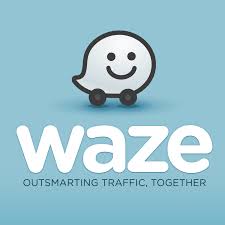Operation Inspiration
Going my Waze? By Rabbi Jonathan Gewirtz
Sometimes a product will be introduced that defines a market. The brand name becomes synonymous with the product like Band-Aids, Q-Tips and Kleenex which are often used instead of the terms bandages, cotton swabs, or facial tissue. Then you have some brand names that become verbs and synonymous with a certain action. For example, the internet search company Google led to the phrase “googling,” meaning “to search for information on the internet.”
Back in the days before GPSes were commonplace, if you wanted to go somewhere you used a map. Some of us remember going to AAA for Triptiks, a map with flippable pages which the AAA employee would use to highlight your route for you. Once computers came on the scene however, we merely had to go to Mapquest.com and we could print out step-by-step directions for our journey. Before a trip we’d ask, “Did you Mapquest the route?”
Well, those days are gone and even portable GPS units are scarce these days as so many people use their phones for GPS guidance. Phones have even made car navigation systems obsolete as they can provide traffic information and suggest changes mid-route.
One of the most popular and prominent applications is Waze. When you have to go somewhere, you’re likely to hear the question, “Which way does Waze say to go? How long does Waze say it will take?” It has become synonymous with navigation systems and is the default go-to for how to go.
Waze began in Israel in 2006 as a program called “Free Map Israel” and by 2013 it had been purchased by Google, owner of its biggest competitor, Google Maps, for $966 Million. The 100 Waze employees received on average $1.2 million dollars from the deal. Now, I’m not sure if the following is the source of its success but what struck me about the Waze platform is how it so clearly embodies major Jewish values.
Let’s start with the fact that Waze is a community-based platform. That means that users (Wazers) all contribute to the development of the map. The idea was that by collecting data from multiple users at no cost to Waze, it could develop a highly-detailed map for free. If that’s not a Jewish concept, I don’t know what is!
Seriously, though, the underlying theory is uniquely Jewish. We are a single unit made up of myriad parts who each contribute to the big picture, just like Waze’s map system. They even encourage linking to other Wazers and communicating with them about when you will arrive as your network of friends using the app grows, keeping us all connected.
Another aspect of their service is that people alert one another about road hazards, obstacles, closures, and other dangers. The Haftarah we read on Yom Kippur from Yeshaya begins with the words, “Solu, Solu panu darech – [The L-rd] says: Build up, build up a highway! Clear a road! Remove all obstacles from the road of My people!” Isn’t that what we’re doing? We are thinking of others and trying to protect them from the perils of the journey.
More than that, there is a built-in feature that people should respond with a thumbs-up, showing gratitude and thanking the person, or alternatively, they click something else that tells Waze the hazard is no longer there and people don’t have to be worried about it. When they give a thumbs-up, the original person who warned about it is alerted that so-and-so thanked him or her.
These concepts of showing appreciation and being concerned with others are part and parcel of the Jewish experience. There’s a famous story of a young woman who arrived at a school for Baalei Teshuva in Israel. She had previously been studying with a guru in Tibet or India or some other country where people feel enlightenment is easier, perhaps because there’s not much else to do.
One day they were walking and the guru found a wallet. He raised his eyes to Heaven, thanked some monkey god or serpent god for the Divine gift, and put it in his pocket. When she asked him if he was going to try to find the rightful owner who was undoubtedly upset about the loss, he shrugged and said with a calm smile, “It’s mine now; the gods gave it to me.” That lack of concern for others shook her to her core and she knew she had to learn more about Judaism.
Speaking of money, Waze can also help you find routes without tolls. While I wish it could tell you how much the tolls were so you could decide whether it was worth your time, the very concept of trading time for money is one that resonates with Jews. We value money, but we value time more. When you have to factor in the amount of time you save by paying the toll and how long it would take you to earn the money you’re paying for the toll it begins to get a bit complicated, but suffice it to say that it’s a very Jewish approach to carefully weigh your options and make the loss/benefit calculations.
Bottom line, I think that the lesson we can take is that however you progress in life and wherever your journey takes you, while you keep your destination in mind, you should never forget where you came from.
© 2018 – All Rights Reserved
Did you enjoy this column? Feedback is welcome and appreciated. E-mail info@JewishSpeechWriter.com to share your thoughts. You never know when you may be the lamp that enlightens someone else.
